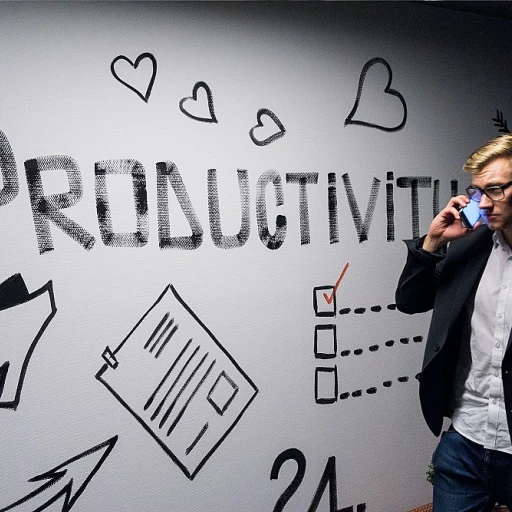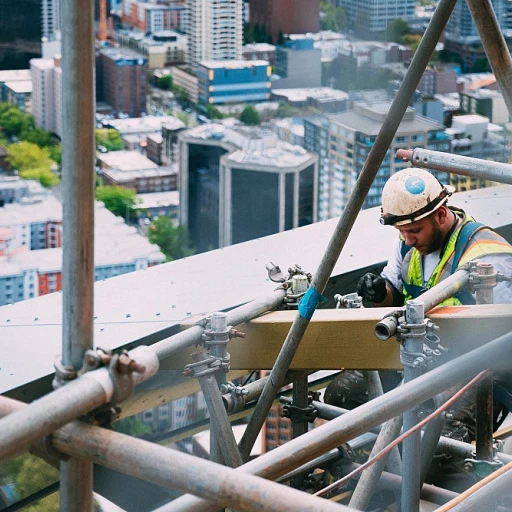
Understanding the Role of a Salesforce Architect
Grasping the Core Responsibilities
Understanding the role of a Salesforce Architect is crucial for anyone preparing for an interview in this field. A Salesforce Architect is responsible for designing and implementing scalable and secure Salesforce solutions that meet business requirements. This involves a deep understanding of Salesforce architecture, data integration, and user experience optimization.
Key Responsibilities
- Designing Salesforce Solutions: Architects must create solutions that leverage Salesforce's capabilities while ensuring data integrity and security.
- Integration with External Systems: Seamless integration with other systems is essential to maintain data flow and performance.
- Managing Salesforce Data: Ensuring data accuracy and consistency across Salesforce and integrated systems is a key task.
- Addressing Technical Challenges: Architects often face technical challenges such as governor limits and data migration, requiring innovative problem-solving skills.
Technical Expertise Required
To excel as a Salesforce Architect, one must possess a strong technical background, including proficiency in Salesforce Lightning components and understanding of Salesforce's data model. Familiarity with best practices for Salesforce integration and the ability to ensure data security are also critical.
Business Acumen and Communication
Beyond technical skills, a Salesforce Architect must communicate effectively with stakeholders to align solutions with business goals. This includes translating complex technical concepts into understandable terms for non-technical users, ensuring that the proposed solutions meet the organization's needs.
For a deeper dive into how clarity in communication can enhance hiring decisions, consider exploring how interviews can be improved for everyone.
Common Salesforce Interview Questions for Architects
Key Topics for Salesforce Architect Interviews
Salesforce Architect positions demand a deep understanding of the platform’s architecture and how it integrates with other systems. Here are common themes you may encounter:- Salesforce Architecture and Design: Be prepared to discuss your understanding of core Salesforce architecture including Salesforce Lightning, data model customization, and how you manage system performance. Expect questions on Salesforce solution development, ensuring data integrity, and executing data migrations.
- Integration Solutions: Explain strategies for seamless Salesforce integration with external systems. Mention the significance of secure data sharing and how you maintain data integrity throughout the integrations using best practices.
- Technical Expertise and System Limitations: Interviewers will be interested in how you handle Salesforce’s technical constraints, such as governor limits. Discuss how you optimize user experience while ensuring technical architecture remains intact.
- Security and Compliance: Discuss your approach to safeguarding Salesforce data and ensuring compliance with business requirements and regulations. Highlight any experience designing solutions that address user access, sharing settings, and data security measures.
- Performance and Scalability: Performance-related questions may include how you ensure the Salesforce system performs efficiently in real-time operations. Be ready to address challenges around high-volume data and how you can mitigate potential technical hurdles.
Crafting Effective Answers for Salesforce Interviews
Formulating Impactful Responses in Salesforce Architect Interviews
Crafting responses during a Salesforce architect interview goes beyond textbook knowledge; it requires showcasing a blend of your technical acumen, business flair, and communication prowess. Let's delve into how you can address interview questions effectively. To start, understand the "why" behind each query. For instance, when questioned about your experience with Salesforce integration solutions, highlight how you have ensured data integrity and seamless user experience by aligning with business requirements. You might consider describing a specific scenario where you successfully integrated external systems, discussing the process and tools you employed. This approach not only illustrates your expertise but also resonates with potential employers looking for proven Salesforce architects. Familiarize yourself with the technical challenges that arise in the Salesforce ecosystem. Responding to inquiries about mitigating governor limits or optimizing performance within Salesforce systems requires an understanding of concepts like data migration, real-time data management, and designing custom solutions that adhere to Lightning platform best practices. When asked about technical architecture decisions, offer a well-rounded perspective on how you balance Salesforce architecture design with system security, user needs, and data scalability. Tailor your answers to reflect your experience with Salesforce data structuring. Detail your process for managing data migration and the measures you take to ensure data is clean and accurate. For example, when asked how you ensure data security and compliance, discuss tools and methodologies you've implemented to safeguard sensitive information. A response to behavioral questions can distinguish you as a candidate. Reflect on past challenges you've faced as a Salesforce architect. Narrate these experiences, focusing on the solutions you architected and the outcomes achieved. Such examples underscore your ability to navigate complex business challenges, demonstrate resilience, and engage stakeholders effectively. To truly succeed in your architect interview, mastering these strategies is crucial. For insight on evaluating candidates effectively, consider exploring this resource for tips on refining your approach.Technical Challenges Faced by Salesforce Architects
Addressing Salesforce Technical Challenges
Salesforce architects routinely encounter a variety of technical challenges that test their skills and resolve. During an interview, being able to discuss and address these challenges can significantly impact your success. Here are some key technical areas often explored in interviews, along with insights to help you formulate your responses:- Governor Limits: Understanding Salesforce governor limits is essential to ensure the system's performance and scalability. Architects should be prepared to discuss how they handle these limits in custom solutions without compromising the user experience. For example, consider how you might optimize queries or use batch processing to accommodate transaction volume while maintaining performance.
- Data Integration: A Salesforce architect must adeptly manage integration with external systems. Be ready to articulate how you effectively synchronize data processes in real time. Discuss your experience with Salesforce Integration, and how you ensure that business requirements are met while maintaining the data integrity of both systems.
- Lightning Components: Knowledge about Salesforce Lightning components is crucial. You might face questions about customizing user interfaces that enhance both usability and visual appeal. Be prepared with examples where you've used these components to improve the system's performance and overall user experience.
- Security Measures: Salesforce security is a significant aspect of the architect's role. Be ready to address how you ensure data security, discussing best practices in user authentication and authorization. Remember, security conversations often touch on compliance and privacy regulations, so show your awareness of these elements too.
Behavioral Questions in Salesforce Architect Interviews
Evaluating Behavior and Problem-Solving Skills
In understanding the nuanced role of a Salesforce Architect, it's clear they need to be adept at more than just technical solutions. Interview questions often delve into behavioral aspects, given the oftentimes complex nature of Salesforce integration and data management projects. Problem-solving and Decision-making:- A critical role of any Salesforce architect involves making pivotal decisions that integrate Salesforce solutions seamlessly with external systems.
- Interviewers may pose questions like, "Describe a time when you had to make a quick decision to solve a technical issue, and what were the consequences?"
- An effective answer should highlight your process-oriented thinking and problem-solving skills, perhaps touching on data integrity or ensuring high user experience and satisfaction.
- Architects work closely with various stakeholders, which often involves collaborating with both technical and non-technical teams.
- You might be asked, "How do you handle a situation where your team recommends a solution that you believe is not in the best interest of the business requirements?"
- Successful candidates will illustrate their ability to lead with influence, finding a balance between the technical architect's insight and the end user’s business requirements.
- Salesforce architecture involves more than designing systems; it requires adopting best practices to ensure data security and system performance, especially when dealing with Salesforce Lightning components and managing governor limits.
- An example answer here would incorporate knowledge of Salesforce best practices, demonstrating both technical acumen and a forward-thinking approach to business solutions.
Handling Pressure and Deadlines
Salesforce architects are often under pressure to deliver high-quality solutions within tight deadlines. The interview might touch on how you prioritize tasks and manage time effectively in fast-paced environments.- Questions focusing on your ability to meet deadlines while ensuring no compromise on the quality of data integration or system performance are common.
- Illustrate your strategies to handle high-pressure scenarios, balancing the demands of real-time data migration with the need for robust Salesforce architecture.
Preparing for a Successful Salesforce Architect Interview
Strategies for a Winning Salesforce Architect Interview
Preparing for a successful Salesforce Architect interview involves more than just knowing the technical ins and outs of Salesforce systems. To truly stand out, candidates should focus on several key areas:- Technical Fluency
- Dive deep into Salesforce architecture to understand various components like Lightning components, data migration, integration, and governor limits.
- Familiarize yourself with technical challenges you might face, and be prepared to discuss how you would ensure data integrity and security within Salesforce systems.
- Prepare answers that showcase your ability to drive seamless Salesforce integration with external systems, ensuring optimal performance and solutions tailored to specific business requirements.
- Behavioral Insights
- Reflect on your past projects and experiences where you navigated complex challenges as a Salesforce Architect.
- Be ready to provide example answers that demonstrate your ability to collaborate effectively with different stakeholders and drive user adoption and satisfaction.
- Practice articulating your thought process clearly to convey confidence and authority during the interview.
- Business Acumen
- Understand that the role isn’t just about technical expertise but also about aligning Salesforce solutions with overall business objectives.
- Show your capability in translating business requirements into technical specifications, ensuring systems support business growth and efficiency.
- Mock Interviews
- Engage in mock interviews focused on both technical and behavioral questions to hone your responses and improve your comfort level.
- Record these sessions to identify areas for improvement in your answers and overall presentation.
- Continued Learning
- Stay updated on the latest Salesforce releases and best practices in Salesforce architecture.
- Attend webinars, read relevant Salesforce blogs, and join professional networks to continuously enhance your knowledge base.













